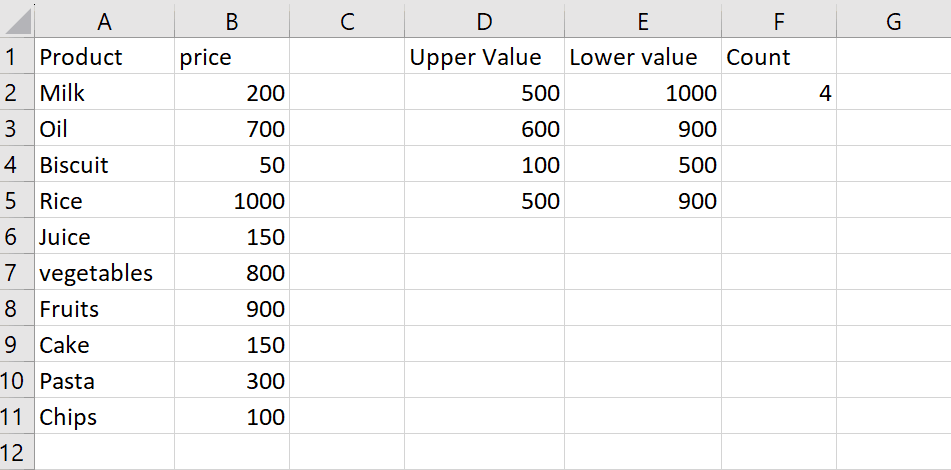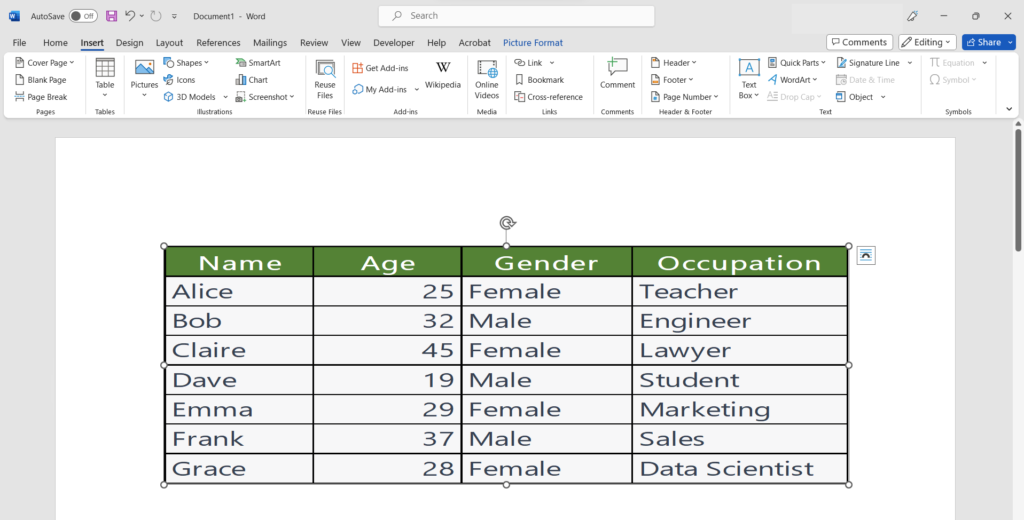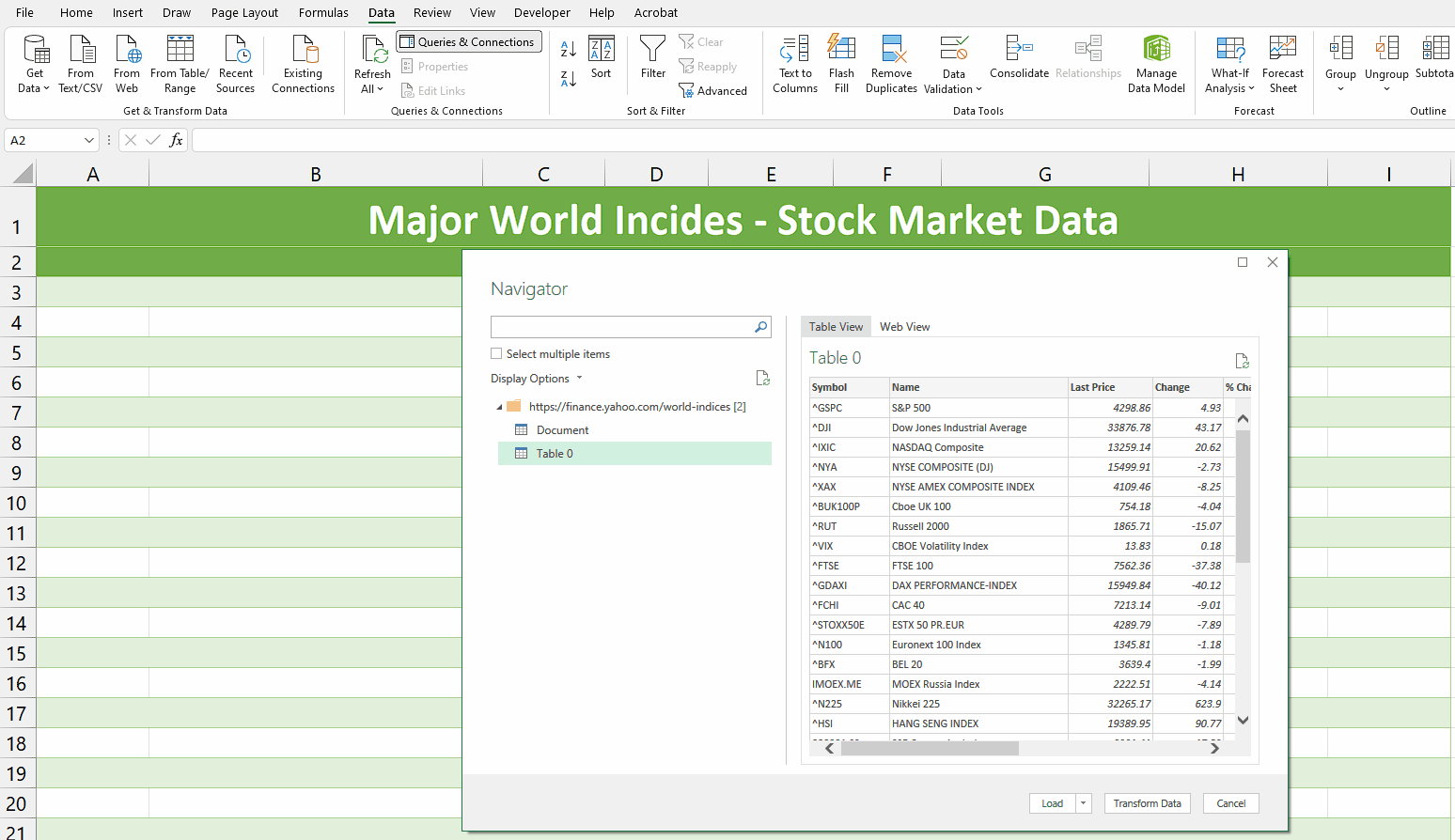How to insert row using VBA in excel
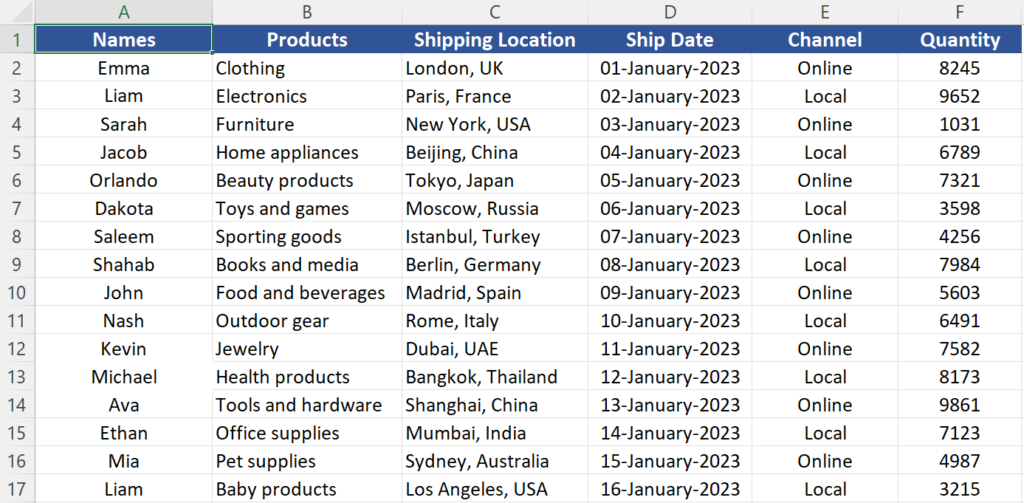
In today’s tutorial, we’re going to learn how to insert a row after any row in excel by using VBA code. We have the following dataset of a large data set consisting of names of the people who are shipping different products on some dates along with their channel of selling and location on which they are shipping products. This dataset will be used as an example for learning today’s tutorial.
In this dataset above we’re going to use VBA code to insert a row after row 11 to add a space between the rows to organize data. Follow the steps to learn this simple tutorial.
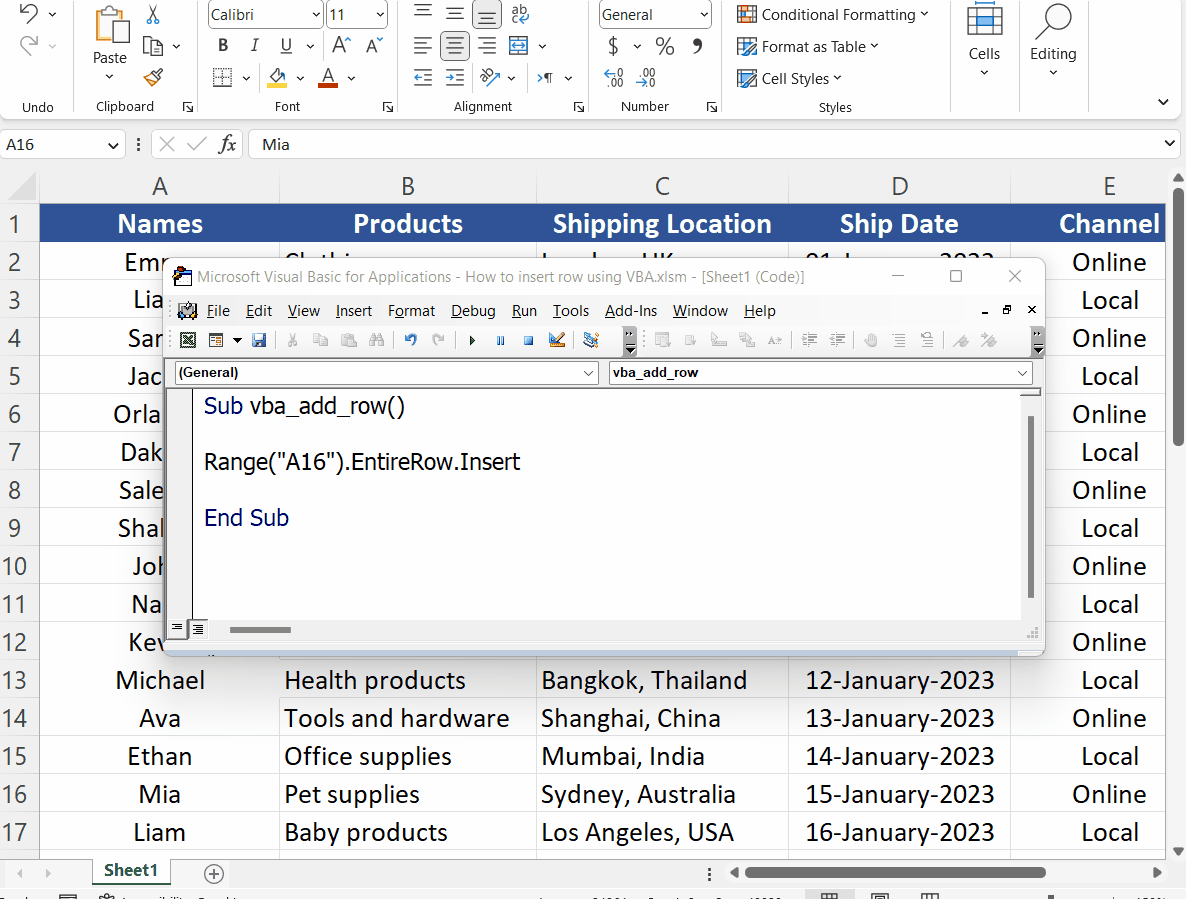
Inserting a new row in Excel through VBA can be really important for a user when he needs to insert a new row through a code. You would need to insert a row in Excel through VBA when you want to automate the process of adding a new row to your worksheet. This can be useful when you have a large amount of data and you need to frequently add new rows, or when you have a repetitive task that requires inserting new rows.
Step 1 – Enable Developer Option
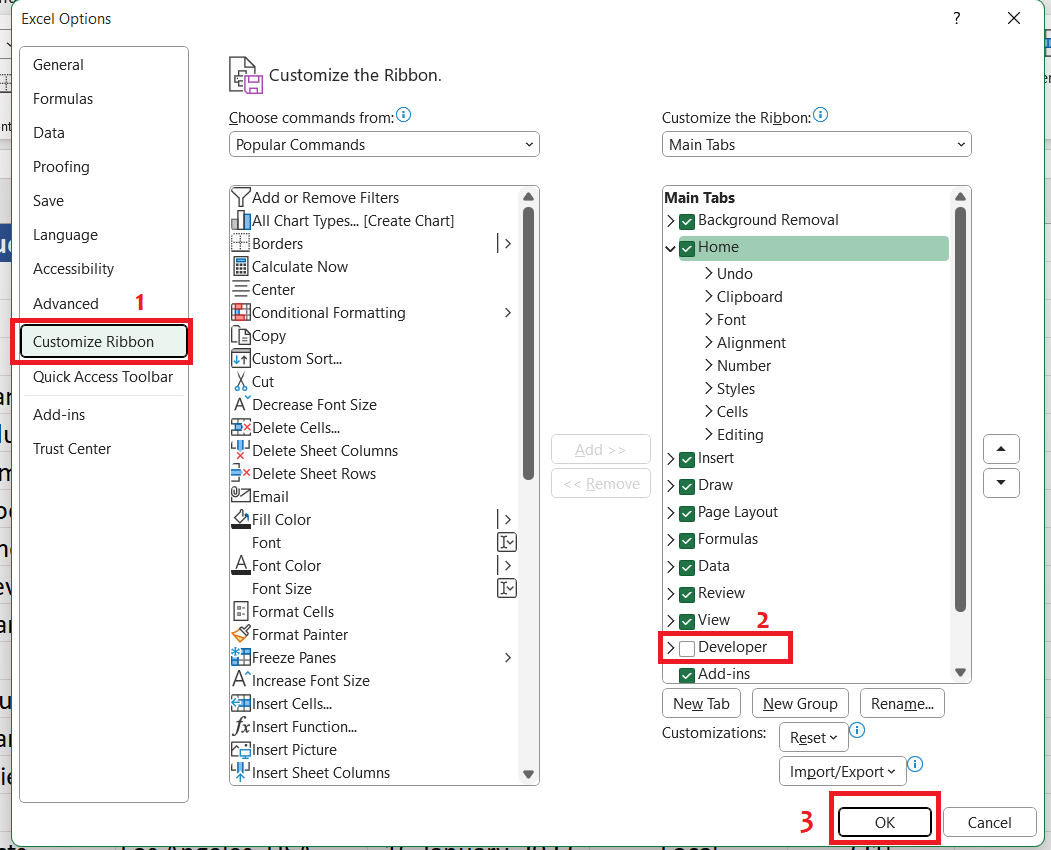
– Click on File and then click on Options.
– In Options click on Customize Ribbon.
– Check the Developer check box in the Main Tabs section.
– Click OK.
Step 2 – Open VBA Editor
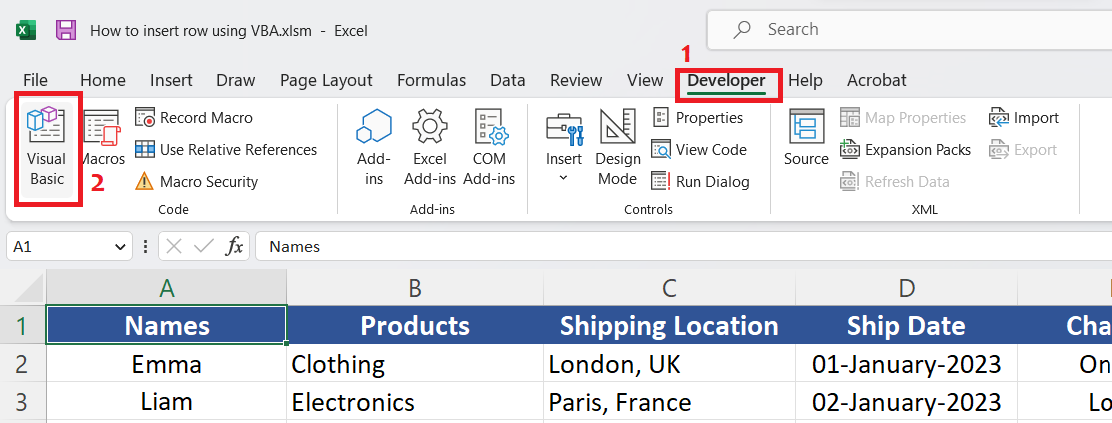
– From the Developer tab click on the Visual Basic option or you may press the ALT+F11 shortcut key to open the VBA Editor.
Step 3 – Insert Row using VBA Code
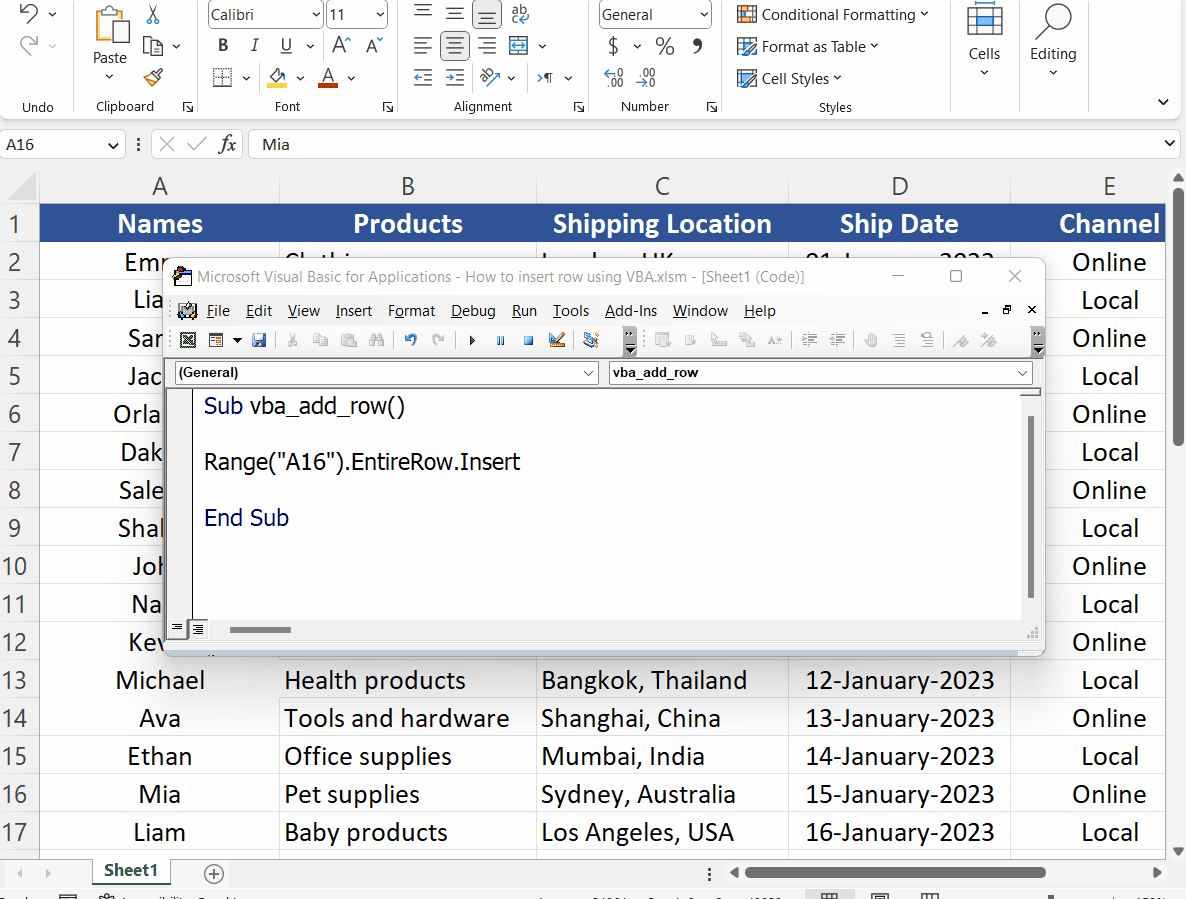
– The VBA Editor is a white window where you can write any code to automate your tasks. We’ll use a very simple command to insert a row in the active workbook. To use the insert command effectively, you need to specify a cell where you wish to insert the new row. In our case we want to insert a blank row and use it as a half month data separator.
– Following code can be used to insert the row at Row # 16 in the current sheet as shown in the image as well. To run the code press F5 or if you want to run the code from inside the Editor then press the green play button .
Sub vba_add_row()
Range(“A16”).EntireRow.Insert
End Sub

